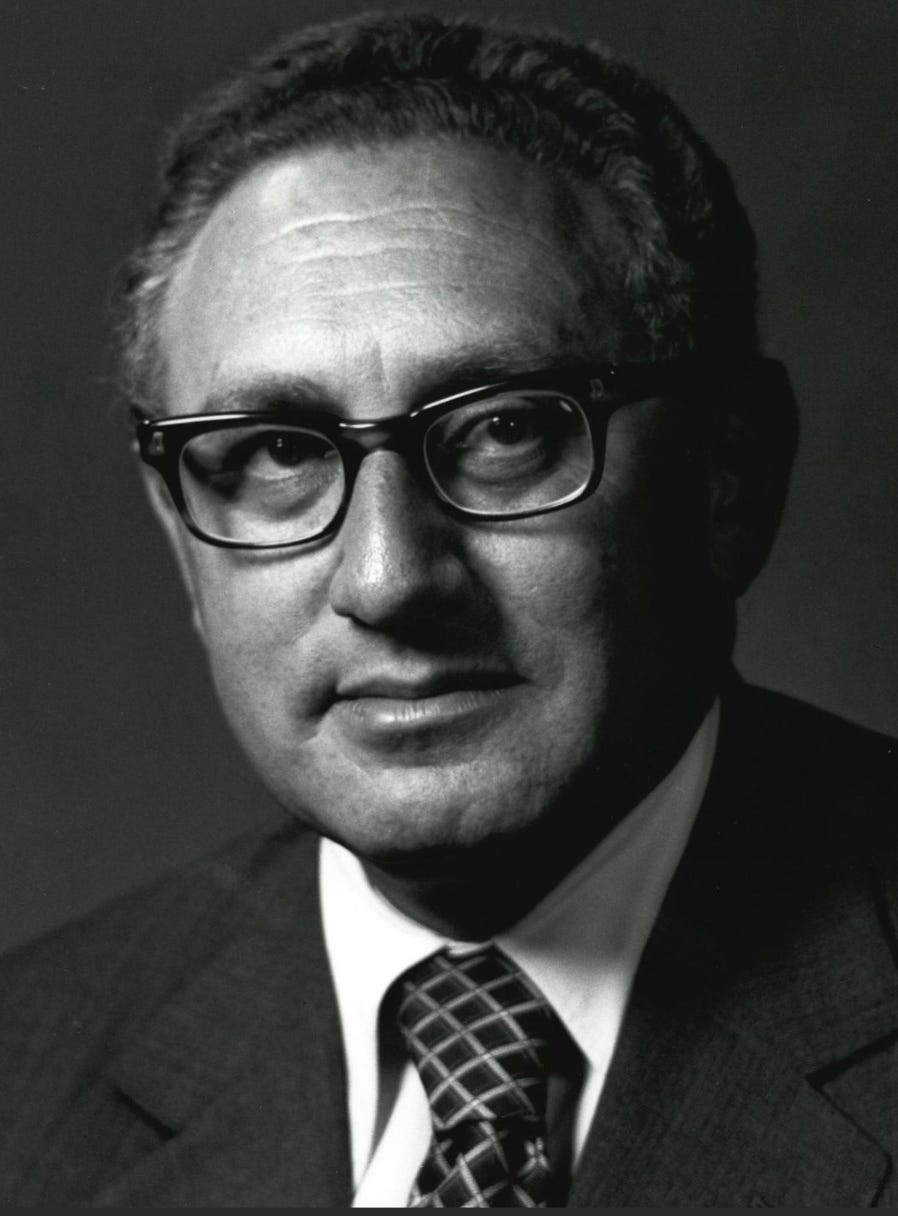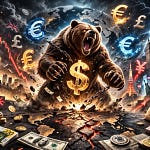Hi guys, Russell here.
Slightly different format to the usual, also slightly different topic than usual. I'm just trying to test out some new functionality that Substack has started, namely that they can do an automatic transcript of any video that I upload directly into using their technology. So I'm probably going to try that out. I'm going to be traveling next month a bit, so it would be very useful if I could just record videos and then Substack does all the hard work for me.
So I'm going to talk about Kissinger and Munger, both very successful Americans, both very different backgrounds and very different worldviews. And I'm just going to sort of talk about how I think they fit in with the world that we're in and what they would perhaps think about the world as it was when they passed on and what that means going forward.
So weirdly they you know they both uh were born around the same time obviously Kissinger was born in Germany and Kissinger you know had a very different sort of worldview; and I think for me you know what was interesting about Kissinger. It this sort of this realpolitik view, this idea for him of trying to keep world powers in balance and as much as possible to avoid any conflict between the great powers.
I think that definitely was influenced by his more, you know, the more brutal experience of World War II, of what can happen when powers clash. His greatest success for Kissinger, I think, was separating China from the Soviet Union and not necessarily bringing China into the pro-US camp, but certainly breaking the relationship between the China and Soviet Union. And when that happened, a lot of the power of the communist bloc was broken up. And so in many ways, his greatest success was helping bring about the ultimate destruction of the Soviet Union.
Now, a lot of people hate Kissinger because of his view that the great powers matter the most. And as The Economist points out, they loved him in China because I think he treated China with the respect they wanted and their understanding of big power politics. I think we can see Kissinger's influence particularly in Trump and his attitude towards Russia of trying to break Russia away from a pro-China camp and bring them into a Western camp or a US camp in the same way that China was in a US camp.
And, you know, he probably explains his policy. Problem, of course, is that Russia has other issues. It has invaded Ukraine. And yet you can see even now, you know, this policy in the States is becoming more and more complicated. I would say for me, if Kissinger was looking at where US politics was now, he'd probably despair.
You know, what I see anyway is the U.S. is trying to keep Asia or woo Asia into the U.S. camp, but it's doing it through fear of China and offering zero free trade, zero higher tariffs and less access to the U.S. market, which is not a super attractive trade. Whereas China, of course, most of Asian Asians live in fear of China, but China is actually going down the free trade route.
It's trying to encourage more and more trade and more integrated economies into the rest of Asia, both through the Belt and Road Initiative and just through participation in regional free trade agreements. And both Biden and Trump have rejected those. And for me, that to me is a disastrous policy.
I think Kissinger would say, ultimately, this is the wrong way. It's too much more short term and too domestically focused politics, which is why I think he'd probably despair. Likewise, you know, the idea of Europe of cutting, you know, of trying to increase, get the Europeans to spend more on defence, not funding Ukraine, even though it's definitely fighting for democracy and freedom and withdrawing forces and conducting sort of industrial trade war policy of Europe. Again, it's a disastrous policy in the long term. So I think Kissinger would despair. I think the last few years have seen some, really some unwinding some of the achievements of him.
On the other hand, Munger, probably when he died, looked at American capitalism and could probably take a lot of credit for the success of American capitalism. I, for one, have been constantly surprised at how well US stocks have done and US asset prices. But when you look at what's driving that, you can see Munger fingerprints all over it.
I think Buffett and Munger have been really big pushers of the idea of companies sticking to their core areas of building moats and then rather than taking the cash that their successful businesses generate and expanding it to other businesses, returning that cash to shareholders, most particularly with share buybacks.
Now if you look at the US equity market, it's gone from a market that used to raise equity to a market now that as a whole returns equity to shareholders. And that is definitely a trademark or a success of Munger and Buffett thinking. My issue with it is I think it's gone too far. US corporates are now too powerful.
They don't pay any tax in Europe, which feeds into this negative feedback of European countries being starved of tax revenue, while at the same time being asked by the US to spend more on defence, and the US claim it's spending towards Ukraine. These are disastrous policies from a Kissinger point of view.
So when I look at Kissinger and Munger, I think Munger probably died being very happy with the world that he saw, and Kissinger died probably looking at the world and despaired somewhat. and I think the reason he despairs in some ways is driven by the success of Munger.
Anyway, some random thoughts about the world. I hope they're interesting. I hope the transcript makes sense. I might be doing more like this. I might even try some other features where I can get subtitles for what I've said underneath, which might be helpful for people who are trying to listen to me on the subway or somewhere like that.
All right, stay safe.
Talk again soon.
Ciao.










